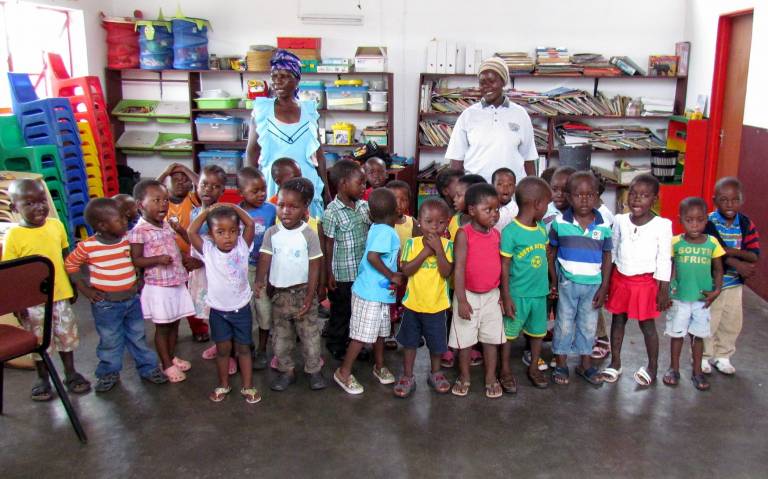IOE leads project to improve the lives of children in poverty
28 May 2020
UCL Institute of Education (IOE) is leading a project to help children in poverty thrive in school and beyond.

Academics at the IOE, in collaboration with the UCL Institute for Global Health, London South Bank University and the University of Pretoria, are working on the project to improve learning and health-related quality of life for primary school children in South Africa’s rural communities.
In South Africa, 38% of children live in rural communities. They are much more likely to be deprived of opportunities for quality education and quality of life than those less disadvantaged.
The new mixed methods study, funded by the Economic and Social Research Council (ESRC), brings together experts in education, health, psychology, sociology, and health economics to investigate how schools can be organised as enabling spaces to improve children’s learning and health.
It will focus on children aged 6-9 because early interventions in this critical period of transition from early childhood to middle childhood can make a significant impact on people’s long-term outcomes.
The project will start with a systematic review and interviews with officials from local and national government organisations and non-governmental public bodies to assess evidence and policy reports over the past three decades. This assessment will identify new evidence in the key education, health and policy areas where intervention programmes have shown the potential of being most effective in improving children's achievement and health-related quality of life in the short, medium and long term.
The results will help the team to develop a systems-oriented intervention that strengthens schools’ organisational and professional capacities to enhance children’s education and development in socioeconomically disadvantaged rural communities.
18 rural primary schools will be part of an initial six-month pilot analysing how different intervention tasks work and to what degree school and community contexts impact this.
The interventions will then be refined and scaled up in 58 rural primary schools, with the researchers continuing to examine the extent of change in schools' capacities and capabilities and how such change has impacted on children's learning and health outcomes.
Professor Gu, Principal Investigator, said: "Young children in high-need socio-economic spaces need support to develop. In this study we will generate new knowledge on school-based interventions that promote early child learning and wellbeing development in highly unequal rural South Africa. The study will show which strategies need to be included in systems-oriented interventions that enable children to thrive, teachers to be confident, school leaders to be innovative and families to feel welcome at schools."
Links
- Schools as Enabling Spaces to Improve Learning and Health-Related Quality of Life for Primary School Children in Rural Communities in South Africa
- View Professor Qing Gu’s research profile
- London Centre for Leadership in Learning
- Department of Learning and Leadership
Image
- Nursery School in South Africa by David Berkowitz via Flickr (CC BY 2.0)
 Close
Close

